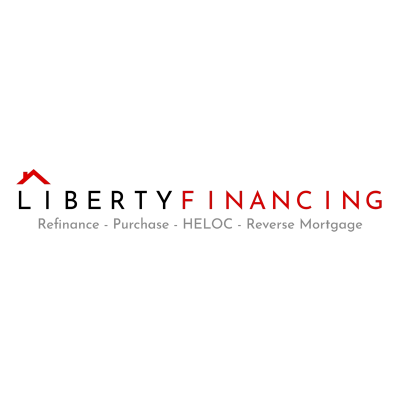Using a Mortgage Broker for a Conventional Loan: 6 Pros and Cons to Consider
Navigating the world of conventional loans can be complex, but mortgage brokers offer a potential solution. This article explores the pros and cons of using a mortgage broker, drawing on insights from industry experts. Readers will gain a comprehensive understanding of how brokers can leverage their expertise, connections, and market knowledge to assist in the loan process.
- Leverage Mortgage Broker's Expertise and Connections
- Partner with Broker for Competitive Rates
- Weigh Broker's Advantages Against Potential Drawbacks
- Compare Same-Day Quotes from Multiple Brokers
- Seek Broker's Guidance Beyond Rate Shopping
- Choose Experienced Broker to Navigate Options
Leverage Mortgage Broker's Expertise and Connections
Not using a mortgage broker is a real homebuying blunder. Retail lenders, even if knowledgeable, are restricted to the loan products of their mortgage company, bank, or credit union. A local experienced mortgage broker is highly trained and has a fiduciary relationship with the borrower. A quality mortgage broker is approved with ten or more wholesale lenders. Some of these lenders are the same ones you might call directly.
The mortgage broker, due to their volume of loans, will already get a better price than a customer walking in the front door. In addition, the broker gathers your income, assets, and credit information and presents it in the bank's format. This saves the funding source operating costs and lowers the cost to the borrower as well. Bottom line, a mortgage broker should be looked upon as an important trusted advisor. Their value comes in assisting you, alongside other professionals, with the proper financing of your foundational and often most important asset: your home.

Partner with Broker for Competitive Rates
If you're considering using a mortgage broker for a conventional loan, my advice would be to treat them as a partner, but also ask the right questions upfront. A good broker can save you time by shopping around for competitive rates and helping you navigate the process, especially if you're comparing multiple lenders or have a unique financial situation.
One clear advantage is access. Brokers often have relationships with lenders you might not find on your own, and can sometimes negotiate better terms because they're sending regular business. The flip side? Not all brokers work with every lender, so you may want to do a little research yourself, just to be sure you're seeing the full range of options. As with anything financial, being informed going in makes a big difference.

Weigh Broker's Advantages Against Potential Drawbacks
Advantages of Using a Mortgage Broker for a Conventional Loan:
1. Access to More Lenders
Mortgage brokers work with multiple banks and wholesale lenders, giving you broader access to competitive rates and loan products you might not find on your own.
2. Time Savings & Convenience
A broker can shop around for you, compare rates, handle paperwork, and streamline communication between underwriters, processors, and the lender—saving you hours of legwork.
3. Potential Cost Savings
Because brokers can access wholesale rates, they may secure better pricing than you'd get directly from a retail lender. This is especially true if your credit or financial situation isn't perfect.
4. Customized Loan Matching
Brokers can tailor loan options to your exact credit profile, debt ratios, and goals—especially useful when trying to qualify for a conventional loan at a lower down payment (e.g., 3%-5%).
Disadvantages to Consider:
1. Compensation Conflicts
Some brokers may steer you toward loans with higher compensation for themselves. Always ask for a Loan Estimate and review the broker compensation disclosure.
2. Lender Restrictions
Not all lenders work with brokers. You might miss out on special promotions or portfolio loan options that are only available through direct-to-consumer channels.
3. Limited Control Over Process
When a broker acts as the middleman, communication can sometimes slow down or be less direct, especially when dealing with underwriting conditions or last-minute changes.
Ask the broker how many conventional lenders they work with and request Loan Estimates from at least three. If they hesitate to provide that transparency, keep shopping.

Compare Same-Day Quotes from Multiple Brokers
Mortgage brokers are an excellent way to secure a good deal on conventional or any other type of mortgage. My one piece of advice is to obtain quotes from multiple companies on the same day. Rates are extremely volatile, and if you request quotes on different days, the price differences may be due to market fluctuations rather than differences between companies.

Seek Broker's Guidance Beyond Rate Shopping
One piece of advice I'd give is to treat your mortgage broker like a financial advisor, not just a rate shopper—ask them to walk you through different loan structures, not just the cheapest rate. A good broker can often access a broader range of lenders and loan programs than a single bank, which can help you qualify more easily or save money over time.
The main advantage of using a broker is their ability to shop multiple lenders on your behalf, which can lead to better terms or faster approval. They also help navigate paperwork and underwriting, which is a huge plus if it's your first time or if your finances are complex.
The downside? Some brokers charge fees or work with a limited panel of lenders, so always ask how they're compensated and whether you're seeing the full range of available options. Transparency is key.
A great broker can simplify the process and save you money—but only if you ask the right questions upfront.
Choose Experienced Broker to Navigate Options
Getting a good mortgage loan is critical, especially these days with home prices and mortgage rates being so high. That's why shopping around for the best lender is so important. But sometimes people just don't have the time or bandwidth to do that on their own, which is one reason why a mortgage broker can be so helpful. Also, mortgage brokers tend to have great connections. They may be able to find options for you that you wouldn't find just by doing Google searches on your own. My recommendation would be to choose a mortgage broker who has a lot of experience and great reviews.



